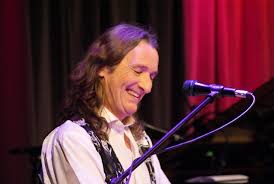Saying Goodbye to Rick Davies of Supertramp
I wrote about Supertramp’s Breakfast in America eleven years ago and later included it in my list of all-time favorites, along with the band’s album, Crisis? What Crisis? In my summary of those two inclusions, I wrote:
I can’t overstate how important this band was to the young version of me, insecure and creative, the youngest child of separated parents. Hodgson’s lyrics were the empathetic voice I craved, though I can’t say for sure that I understood them all at the time. Listening to Supertramp nearly forty years on, the band’s output still holds up. I’ve always loved the juxtaposition of Davies’s and Hodgson’s respective oeuvres, one cynical and cranky, one spiritual and nurturing, and together they were greater than the sum of their parts.
Rick Davies died a few days ago, and as important as some of Hodgson’s lyrics were to me as a youth, it was Davies’s piano skills that attracted much of my attention, as I moved beyond the Michael Aaron piano books I’d been trudging through for years and started to explore playing songs that I loved. When I was twelve, I purchased the manuscript book of Crime of the Century, and I studied those songs with curiosity, amazement and confusion, unable to play some of the licks to my satisfaction. Easiest among the lot was the title track, and for a brief period I played the song in the living room of classmates Jon and Scott Wittkopf, who added drums and guitar to the mix. It was my first foray into playing with a group, and it jumpstarted my excitement to be in a band as I dreamed of music stardom.
My brother soon encouraged me to learn “Another Man’s Woman,” a piano tour-de-force that begins with a terrific percussive groove and culminates with an equally terrific solo, and I managed to do a fair job of replicating it by ear rather than a manuscript. Soon to follow were songs like “Asylum,” “Just Another Nervous Wreck,” and “From Now On.” This band was inspiring!
But for any pianist, it was “Bloody Well Right” that set the standard, with Davies’s extended blues-based Wurlizer solo instantly recognizable. I must say that I fumbled through it as a child, only kinda-sorta achieving the spirit of the solo if not the actual notes. It wasn’t until I was in my 30s that I finally sat down and transcribed the solo note for note, slowing the tune down to identify some of the faster runs, and even today it’s an intro that break out from time to time.
Beyond the obvious piano chops of Rick Davies, his sonically-edged compositions helped to compensate for Hodgson’s sweeter side. Davies basically played Lennon to Hodgson’s McCartney, or Amy Ray to Emily Saliers of Indigo Girls, offering a bit of cynicism and realism to the philosophical Hodgson. I thought that Davies really hit his stride on Breakfast in America and Famous Last Words…, the final Supertramp albums before Hodgson left the band. I loved songs like “Gone Hollywood,” “Oh Darling,” “Just Another Nervous Wreck,” “Put on Your Old Brown Shoes,” and “Waiting So Long.” They may not have been hits, but they helped elevate the Supertramp releases into satisfying listening experiences, making them “complete” albums, and not just some filler songs amongst a few of Hodgson’s hits.
I got to see Rick Davies twice: once at Alpine Valley in 1983, and then two years later at MECCA in Milwaukee. For the latter show, I was excited that Davies would have more of a chance to shine as the only songwriter left in the band. Unfortunately, the setlist was lacking, as was Davies’ ability to hold an audience. It was decent, but it was clear that Supertramp missed Hodgson. Unfortunately, they would never play together again.
It was just two weeks ago that Hodgson lost a publishing royalty appeal between him and the rest of the band. A sad way to end the legacy of a great band.
